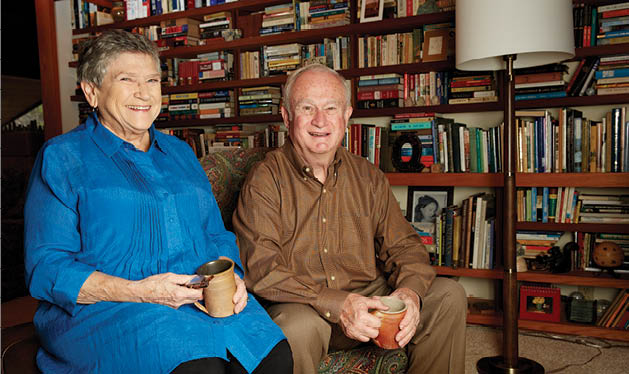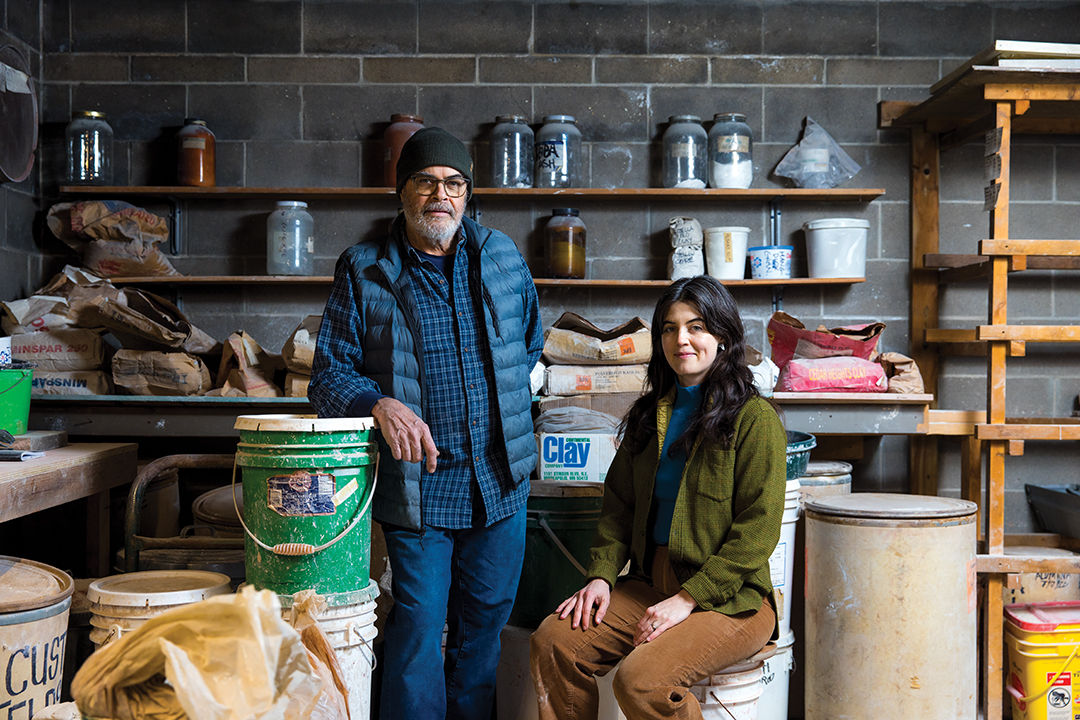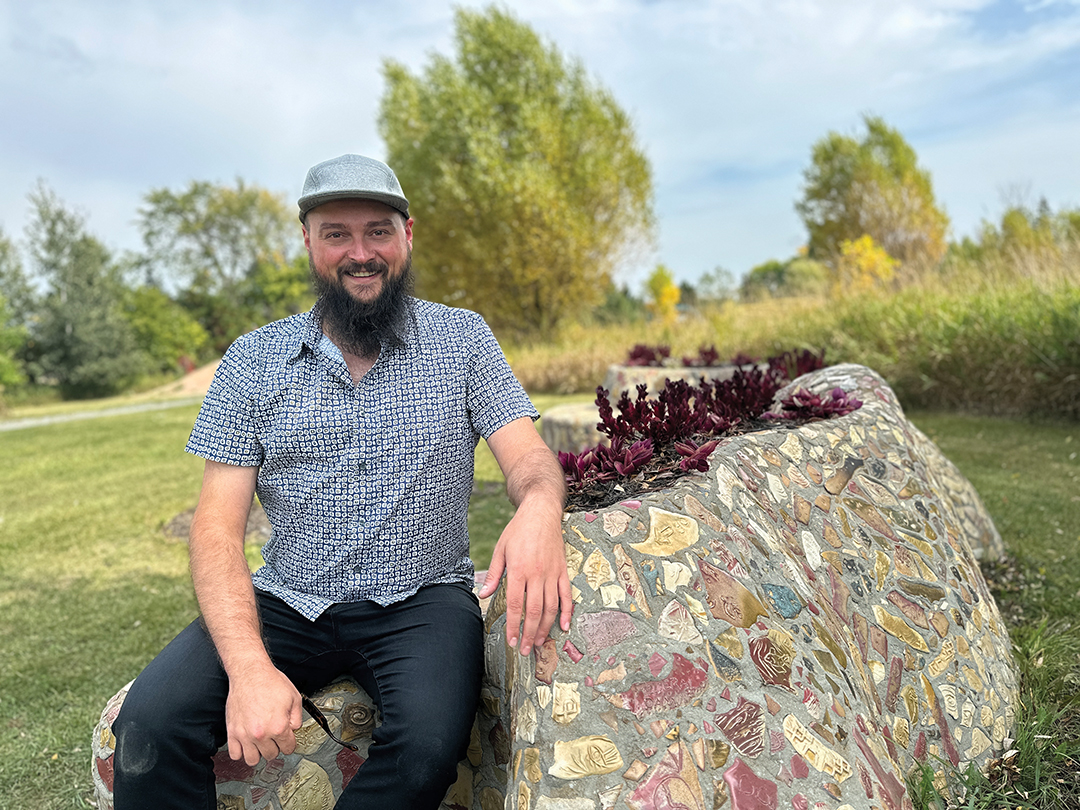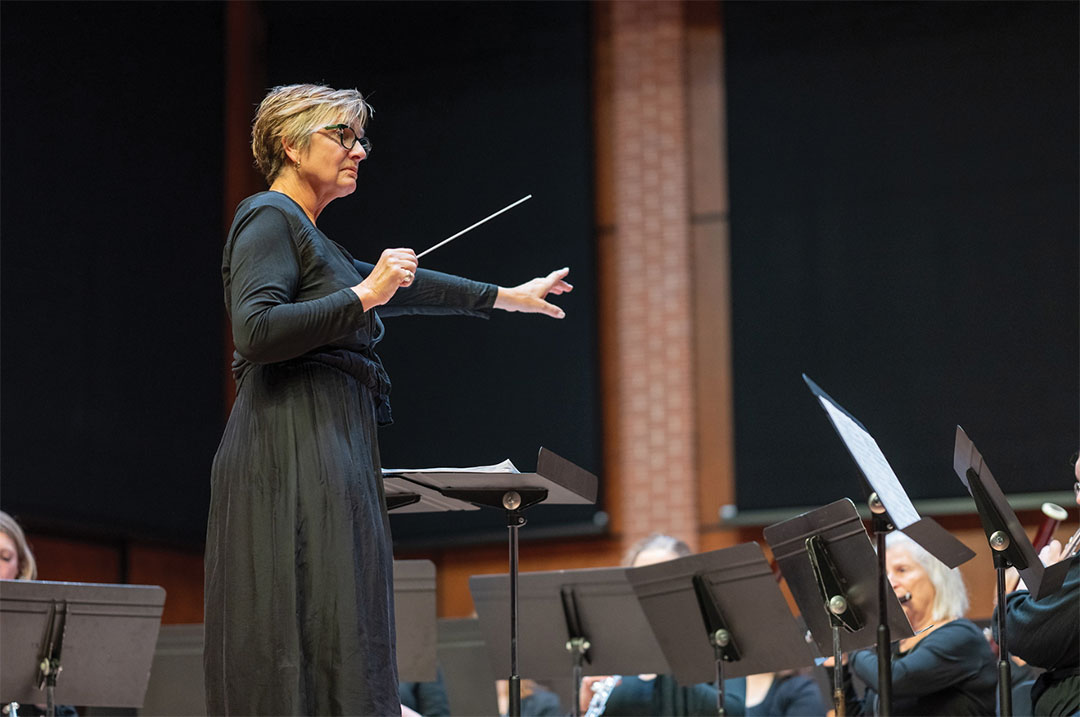
Peg and Dr. Paul Quinn sit down in their Stillwater home to share their personal experience with memory loss. Photo: Tate Carlson
Dr. Paul Quinn and his family are sharing their story to help battle the stigma associated with Alzheimer’s disease.
As a physician retired from family practice in Stillwater and the U.S. Navy, Dr. Paul Quinn was aware of the common signs of Alzheimer’s disease and its prognosis. When he recognized the symptoms of the disease beginning to affect his own life—mainly a worsening short-term memory—he understood the ramifications. “My mother had Alzheimer’s,” he says, noting that the disease can run in families. “I kind of knew that’s what it was.”
In late 2014, Quinn was diagnosed with mild cognitive impairment. By definition, mild cognitive impairment is an intermediate stage between the expected cognitive decline of normal aging and the more serious decline of dementia. According to the Alzheimer’s Association website (alz.org), dementia is the more general term; Alzheimer’s disease accounts for 60 to 80 percent of all dementia cases. Dementia involves problems with memory, language, thinking and judgment that can interfere with normal daily function.
“It’s hard to know what to expect in the future,” says Quinn’s wife, Peg. “Mild cognitive impairment does not necessarily develop into Alzheimer’s disease, but it may.” At this time, it is affecting the couple’s lives in a variety of ways. Peg has taken over some of her husband’s household responsibilities, such as managing the couple’s finances.
Life requires more patience, says one of their daughters, Ann Quinn Vance of Woodbury. Vance says her father still quite functionally manages his own care and the care of her parents’ large Stillwater property. She describes her mother as dependable, smart and dealing with her husband’s illness day by day, with some days better than others. “For my mom, it takes a lot of patience,” Vance says, noting the kind of no-nonsense resolve that motivates her mother to write daily notes to a husband of 50 years, reminding him, for example, of the day of the week, or what tasks are on his schedule.
Bridget Rissmann, public relations and social media manager for the Alzheimer’s Association–Minnesota North Dakota chapter, says Alzheimer’s is the only disease in the top 10 leading causes of death in the United States that can’t be cured, prevented or slowed. With no cure, no curative treatment, symptoms that threaten a person’s health as well as their sense of competence and self, it’s no wonder that many people prefer not to go to a doctor when they think they might have Alzheimer’s disease. But this is where the Quinn family shines, with Paul Quinn front and center. “I was interested in doing what I could to get rid of the stigma of Alzheimer’s,” he says. “It’s going to affect a lot of people, with the baby boomers moving into the age range.”
Under the care of his neurologist, Dr. Michael Rosenbloom, Quinn has enrolled in a national drug trial at HealthPartners Center for Memory and Aging, for which Rosenbloom is clinical director. Periodic re-evaluations for the study take time, but drug trials are one thing he and his family are doing to battle Alzheimer’s. “I don’t know what drug I’m getting, or even if it’s any drug,” Quinn says. “It might be a placebo.” But only with such experiments, he knows, will progress be made.
The Quinn family has grown significantly since they raised their four children in Stillwater. Today, their son and daughters live in Minnesota and California, and the Quinns are the proud grandparents of 12 children. Last September, they joined the fundraising event, Walk to End Alzheimer’s. These type of events are helping to fund grants to support research, such as University of Minnesota’s study on the potential for physical activity and exercise to slow the progress of the disease.
“We’re happy if people are talking more about Alzheimer’s, if people use Paul as a discussion point,” says Peg, and Paul agrees. And while they may not always agree, Paul and Peg and their family will battle this just as they have every other challenge, and welcomed every joy, in their long lives together.
For more information, visit the Alzheimer’s Association website. Additionally, 24/7 assistance from trained staff is available by calling the Alzheimer’s Association hotline at 800.272.3900.






















